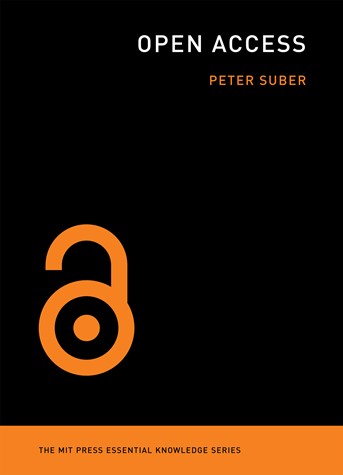 Peter Suber’s essential book Open Access is now, well, open access, one year after publication. It’s available in a variety of digital formats (scroll down to view), including HTML, PDF, ePUB, and Mobi. I also recommend the Internet Archive’s excellent streaming version, which I was unaware of until recently. Suber is also providing updates and supplements to the book. If you read only one book about open access, let it be this one!
Peter Suber’s essential book Open Access is now, well, open access, one year after publication. It’s available in a variety of digital formats (scroll down to view), including HTML, PDF, ePUB, and Mobi. I also recommend the Internet Archive’s excellent streaming version, which I was unaware of until recently. Suber is also providing updates and supplements to the book. If you read only one book about open access, let it be this one!
Richard Poynder offers two new interviews on the current state of open access with Mike Taylor and Stevan Harnad. I tend to follow Taylor more than Harnad, and particularly like the former’s interview references to dispensing with journal prestige and the cost savings that will come with OA. I’m skeptical that Harnad’s vision of universal green (archived) OA will come to pass, though I think article archiving is an immensely valuable stopgap effort until more OA journals are up and running.
 Congratulations to Oregon State University for adopting an open access policy. The Faculty Senate did so unanimously. OSU has been one of the leaders among public universities on open access- the Faculty Senate endorsed OA a few years ago, they had the first library faculty OA policy, and their repository already hosts 58% of faculty papers. Let’s hope Virginia Tech won’t be too far behind.
Congratulations to Oregon State University for adopting an open access policy. The Faculty Senate did so unanimously. OSU has been one of the leaders among public universities on open access- the Faculty Senate endorsed OA a few years ago, they had the first library faculty OA policy, and their repository already hosts 58% of faculty papers. Let’s hope Virginia Tech won’t be too far behind.
Abuse of the term “open” is the subject of the most recent post from John Wilbanks:
So let’s get this clear. Just because you’re making something available that wasn’t previously available doesn’t qualify as open. Just because you’re reducing the transaction costs of access to something doesn’t qualify as open. Just because you’re involving more people than before doesn’t qualify as open.
Since there seems to be so much confusion about what “open” means (or intentional misuse for PR purposes), advocates of openness can provide a more precise meaning by calling out uses that don’t follow the Open Definition:
A piece of data or content is open if anyone is free to use, reuse, and redistribute it — subject only, at most, to the requirement to attribute and/or share-alike.
